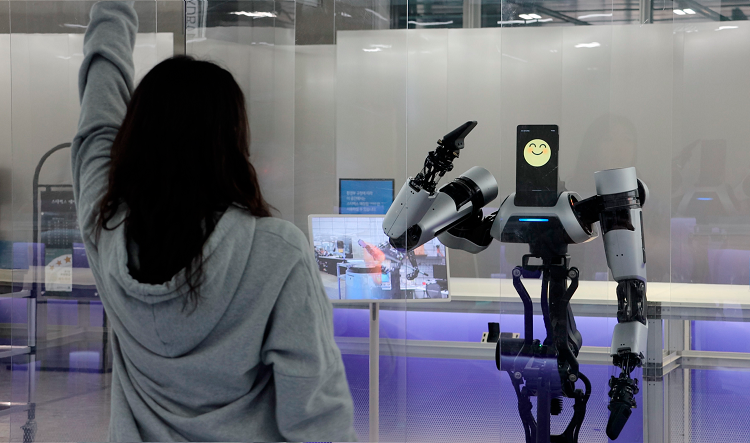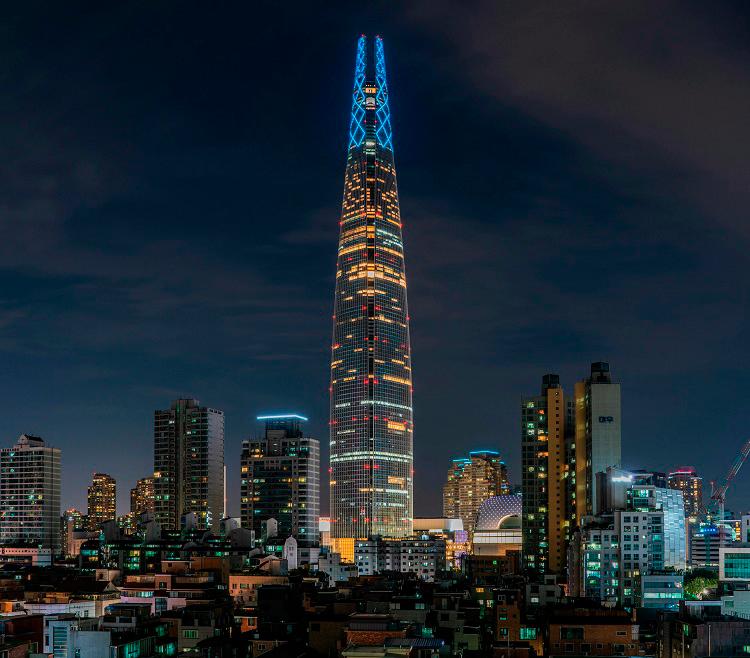AT the heart of South Korea, Seoul has evolved into one of the world’s most dynamic technology hubs, drawing global attention for its cutting-edge innovations.
Known for its deep-rooted history, bustling markets and world-famous entertainment industry, the city is now firmly positioned as a leader in artificial intelligence (AI), robotics, semiconductor manufacturing and smart city development.
With tech giants such as Samsung, LG and Hyundai leading the charge, alongside a booming start-up ecosystem, Seoul has grown
into a formidable rival to US’ Silicon Valley.
Seoul at glance
Seoul, the capital of South Korea, is not only the political and economic centre of the country but also its innovation hub. Covering an area of 605.2 sq km and home to nearly 10 million residents, the city serves as the beating heart of South Korea’s tech-driven economy. The broader Seoul metropolitan area, which includes cities like Incheon and Suwon, hosts over 25 million people, making it one of the largest urban centres in the world.
As a global city, Seoul seamlessly blends tradition with cutting-edge technology. While historic sites such as Gyeongbokgung Palace, Bukchon Hanok Village and the vibrant Namdaemun Market attract millions of tourists, the city’s digital transformation is visible everywhere. From 5G-powered smart transportation to AI-driven customer service, Seoul has embraced technology like few others.
According to the Seoul metropolitan government, in 2023, the city welcomed over 14 million visitors, marking a 12% increase from the previous year. Of these, more than 2.3 million were international tourists, contributing to a tourism industry worth over 20 trillion won (RM66.5 billion). Seoul’s rising reputation as a tech hub has also attracted business travellers and entrepreneurs seeking to engage with the city’s thriving start-up scene.
Tech titans, rising stars
Seoul’s tech dominance is fuelled by a combination of global tech giants and emerging start-ups. Samsung, headquartered in the city, is among the world’s largest semiconductor and smartphone manufacturers, shaping the global electronics industry. LG, another Seoul-based powerhouse, leads in consumer electronics, AI research and automotive technology. Hyundai, though known for its automobiles, has heavily invested in robotics and autonomous vehicles, positioning itself at the forefront of mobility innovation.
Beyond these corporate giants, Seoul’s start-up ecosystem is flourishing. The city has been the birthplace of several innovative companies making waves in AI, biotechnology, fintech and gaming. Among the most notable start-ups are:
➤ Naver Labs: A subsidiary of Naver, Korea’s leading search engine, focusing on AI, robotics and autonomous mobility solutions.
➤ Coupang: Often referred to as South Korea’s Amazon, the e-commerce giant revolutionised logistics and delivery with AI-driven fulfilment centres.
➤ DeepBrain AI: A leading innovator in AI, known for its advanced deep-learning virtual humans, AI-driven conversational agents and real-time interactive AI solutions for industries such as media, education and customer service.
➤ Viva Republica: A fintech unicorn and operator of the financial super-app Toss that transformed South Korea’s digital banking and
payment landscape.
➤ Rebellions: A semiconductor start-up developing next-generation AI chips to compete with global players such as Nvidia.
These companies, along with hundreds of others, have benefited from Seoul’s emphasis on fostering innovation through financial incentives, research grants and world-class infrastructure.

Driving forces behind tech boom
Seoul’s meteoric rise as a technology hub is no accident. It is the result of strategic government policies, world-class infrastructure and a highly skilled workforce. The South Korean government actively promotes technological innovation through initiatives such as the Digital New Deal, a multi-billion dollar programme aimed at boosting AI, cloud computing and smart
city technology.
One of the most significant advantages that Seoul offers tech companies is its unparalleled internet infrastructure. South Korea consistently ranks among the top countries in terms of internet speed, with near-universal 5G coverage. This robust digital backbone has made Seoul an ideal testing ground for emerging technologies, from autonomous vehicles to AI-powered healthcare solutions.
The government has also established start-up-friendly policies to encourage entrepreneurship. The Seoul Start-up Hub, Pangyo Techno Valley and COEX are just a few of the city’s innovation centres that provide funding, office space and mentorship programmes for emerging businesses. These incubators have played a crucial role in nurturing start-ups, allowing them to scale up and compete on the global stage.
Culture of innovation, support
What sets Seoul apart from other tech cities is its culture of innovation and long-term commitment to technological progress. The South Korean education system places a strong emphasis on science, technology, engineering and mathematics, producing a highly skilled workforce that fuels the country’s tech industry.
Leading universities such as Korea Advanced Institute of Science and Technology, Pohang University of Science and Technology and Seoul National University continue to produce top-tier engineers, AI researchers and entrepreneurs who drive innovation forward.
Seoul’s government also actively collaborates with tech companies, providing tailored support to help them thrive. For instance, Naver Labs has been testing its autonomous delivery robots within controlled environments, such as its headquarters and select commercial areas, as part of broader smart city initiatives.
Similarly, during the Covid-19 pandemic, Seoul rapidly deployed AI-driven contact tracing and smart quarantine management systems, showcasing its ability to integrate technology into public policy effectively.
Beyond government support, Seoul’s private sector has embraced risk-taking and experimentation. The city’s gaming industry, led by companies such as Nexon and NCSoft, has pushed the boundaries of virtual reality and AI-driven gaming experiences. Fintech firms have disrupted traditional banking models, with digital-only banks such as KakaoBank gaining massive adoption.
Future outlook
Seoul’s transformation into a global tech hub is far from over. The city has set its sights on becoming a leader in AI, blockchain, biotechnology and smart mobility. Investments in green technology and sustainable innovation are also on the rise, with ambitious goals to become a carbon-neutral city by 2050.
With its blend of government support, corporate innovation and entrepreneurial spirit, Seoul is poised to shape the future of global technology as it continues to push the boundaries of what is possible.









